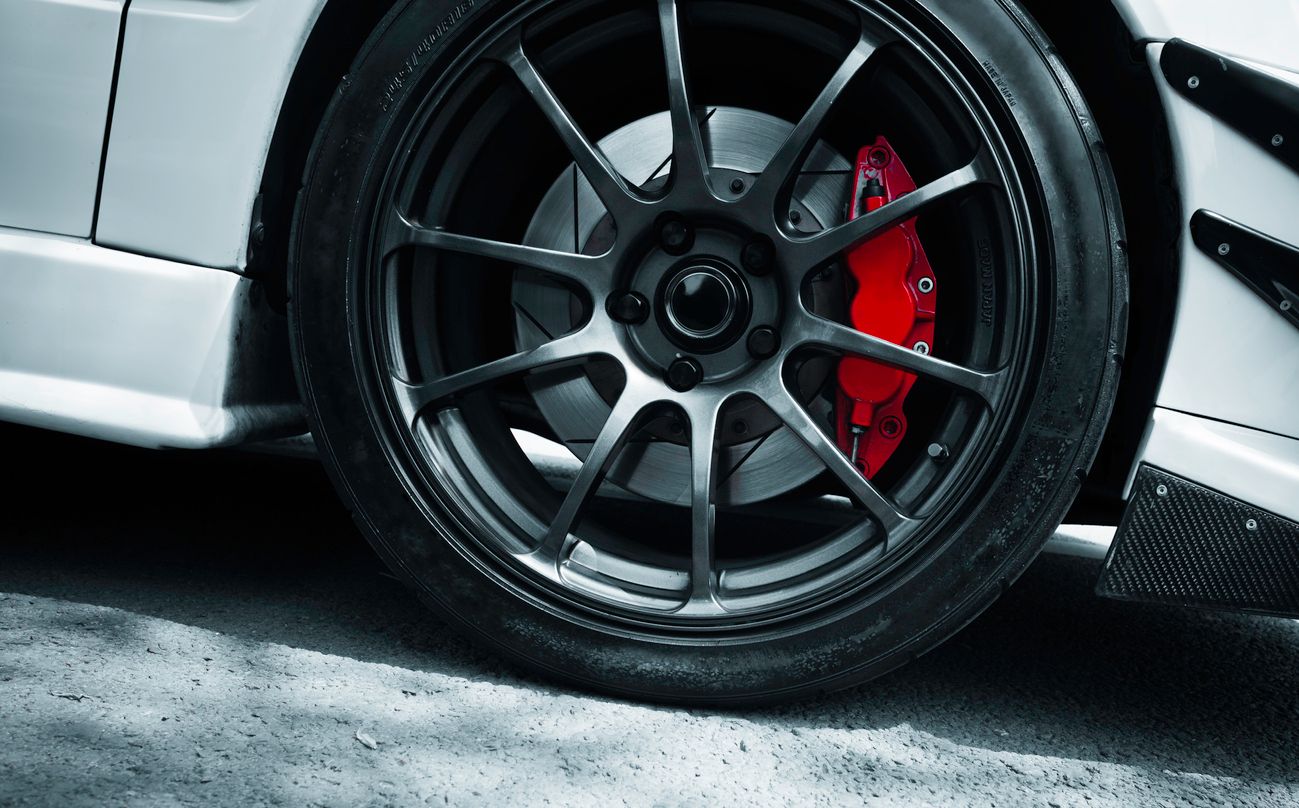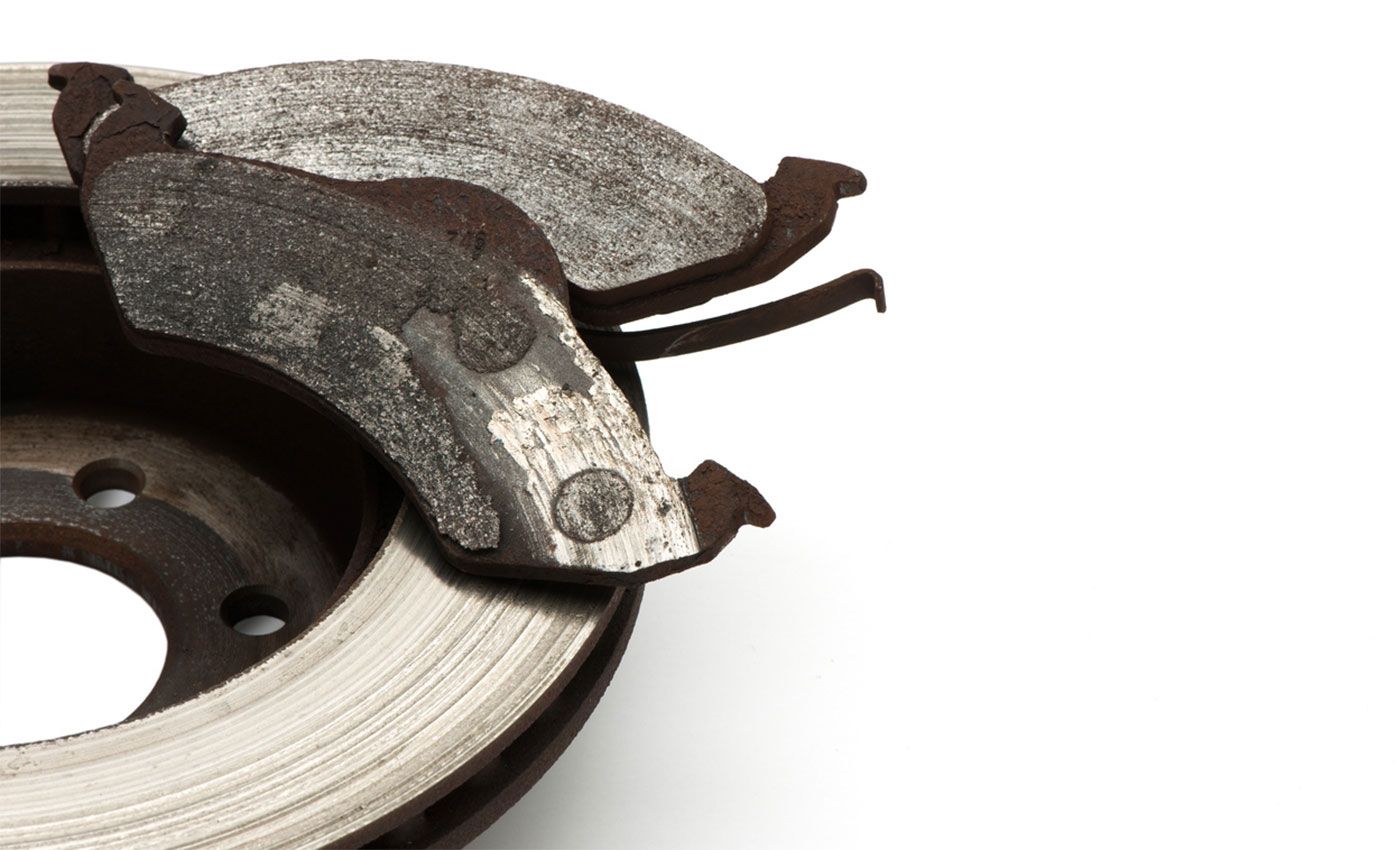If your brake pedal gets stiff while driving, you might feel like you have to practically stand on the pedal to slow down or stop your vehicle. Naturally, since it becomes harder to slow down your car, a stiff brake pedal is a serious safety hazard that should be serviced right away.
But what causes a brake pedal to be hard in the first place? Read on to learn four potential reasons for why your brake pedal is hard to press.
How Do Brakes Work?
In most cases, stiff brakes are caused by problems with the brake booster. Brake boosters multiply the force applied to your brake pedal, and they work in tandem with the hydraulic fluid in the brake lines. This system, also known as power brakes, allows you to stop a two-ton vehicle with just your foot!
Common vacuum brake boosters, located between the master cylinder and brake pedal, have two chambers separated by a diaphragm within it. In the front chamber, air is removed to create a low-pressure vacuum. In the back chamber, pressing the brake pedal allows air to enter.
Because the pressure from the air chamber is greater than the pressure in the vacuum chamber, the diaphragm — and a pushrod connected to it — is pulled toward the low-pressure side. In turn, this power-assisted pushrod applies force to the master cylinder’s pushrod, which would otherwise be very difficult to move. The master cylinder then sends brake fluid to the brake calipers or wheel cylinder (if the vehicle has rear drum brakes), causing the brake pads or rear shoes to rub against the rotors or rear drums and slow your vehicle.
Now that you understand how your power brakes system works, it may be easier to diagnose your stiff brake pedal. Here are four possible reasons your brake pedal is hard to press:
Why is My Brake Pedal Hard to Push Down?
Bad Brake Booster
A bad brake booster is one that can no longer maintain vacuum pressure. Most vacuum-assist power brakes function because of engine vacuum. The brake booster is connected directly to the engine’s intake manifold via a vacuum hose, allowing the process of drawing air into the engine to also draw air from the front chamber of the brake booster via a check valve.
Occasionally, a tear will develop on the diaphragm, or the check valve may break. In both cases, the brake booster may no longer create vacuum and will fail to supply power to the master cylinder.
Thankfully, there’s an easy way to tell if your brake booster is the source of your stiff pedal problem:
- With the car turned off, simply pump the brake pedal a few times. The pedal should become increasingly difficult to press down.
- Then, with your foot still pressed on the pedal, start the car.
- If the pedal sinks down before becoming firm, your brake booster is probably not the problem.
- If the pedal remains firm, you likely have a bad brake booster.
While there are plenty of ways to troubleshoot your brake problems at home, you can always bring your car to your local Firestone Complete Auto Care for a complimentary brake inspection–we’ll get to the bottom of things quickly and conveniently!
Failing Vacuum Pump or Power Steering Pump
Some vehicles have a different type of brake booster. In these vehicles, the brake booster can be a mechanical or electrical driven pump instead of using the engine intake manifold to create vacuum. Also, some vehicles may have a hydraulic brake booster that uses direct hydraulic pressure generated by the power steering pump instead of engine vacuum.
If you have a stiff brake pedal and the vehicle has a vacuum pump or hydraulic brake booster, some common issues could be a missing serpentine belt, a failing electric pump, or low power steering fluid.
Cracked Vacuum Hose
A vacuum hose connects your brake booster to the engine, through which air is drawn to create vacuum. Oftentimes, the loss of vacuum that leads to a stiff brake pedal is caused by a broken vacuum hose. This is because rubber vacuum hoses tend to dry rot and crack at their connecting points over time. If you hear a hissing noise when you apply the brakes, it could be the sound of a leaking vacuum hose or brake booster diaphragm. Sometimes fixing a hard brake pedal is as simple as replacing the vacuum hose.
Seized Caliper
Another potential cause of hard or stiff brakes is seized brake calipers. Brake calipers are one of the most essential components of your vehicle's braking system. Their main job is to push your brake pads against the rotor when you attempt to stop your vehicle. Sometimes, brake calipers or their connected screws can become stuck, preventing them from engaging and positioning your brake pads correctly. The result of this issue may be a stiff brake pedal. If you're experiencing a stuck caliper, it's best to have a professional investigate and resolve the issue.
Sludge in the Brake Lines
If you’ve tested your brake booster and found that it isn’t causing your stiff brake pedal, then the hard pedal may be due to sludge in your brake lines. Brake fluid absorbs moisture, which may enter the brake system from exposure to the air. Over time, the presence of water will cause sludge to build up, limiting the movement of the brake fluid and causing your pedal to feel stiff.
Have your brake fluid exchanged at least every two years to prevent sludge buildup and keep your pedal operating as it should.
Stop By Firestone Complete Auto Care
Being able to stop or slow down efficiently is critical to road safety. Don't risk driving on stiff brakes! Book your appointment today!



